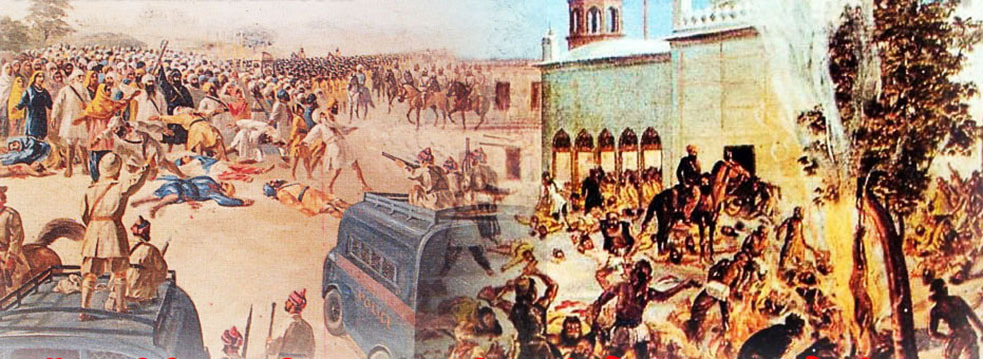


After the BJP-led Government of India (GOI) denied Sikh jatha permission to go to Pakistan to attend the centennial event of the Nankana Sahib massacre that took place at Gurdwara Janam Asthan (birthplace of Sikhi’s founder Guru Nanak Sahib) at Nankana Sahib on February 20, 1921, the Sikh leaders are reminding the GOI of the role the massacre played in the Indian freedom struggle and urging it respect the Sikh sentiments for at least this reason. However, the government has paid no heed to this point raised by the Sikh leaders, thereby further causing feelings among the Sikhs of alienations.
Fumed over the denial like all the Sikhs across the world, SGPC-appointed Jathedar of highest Sikh temporal seat Akal Takht Sahib Giani Harpreet Singh said, “The government has forgotten that the then Indian leaders including (Mahatma) Gandhi hailed the sacrifices of the Sikhs. After getting control of the historic shrine, he had to say that they had won the first battle of the freedom struggle. The Sikhs were going to commemorate martyrs of what was called the first battle of Indian freedom struggle”.
Meanwhile, the SGPC president Jagir Kaur said, “This incident laid the foundation of the country’s independence.”
More than 260 Sikhs, including children, women, and old aged, were killed in this massacre by the characterless Mahant Narain Das and his mercenaries who had the patronage of the colonial British government. The event forms an important part of Sikh history. The saga constitutes the core of the Gurdwara Reform Movement started by the Sikhs in the early twentieth century.
‘Second edition of Jallianwala Bagh massacre’, says ‘Mahatma’ Gandhi
It is worth recalling here that Gandhi visited Nankana Sahib on March 3, 1921. Addressing the gathering, Mahatma said: “I have come to share your anguish and grief. It is interesting indeed to note that the Sikhs in this drama remained peaceful and non-violent from the start to the end. This (role of the Sikhs) has greatly added to the glory and prestige of India….. “All indications point to the fact that the cruel and barbaric action is the second edition of the Jallianwala Bagh massacre; rather more evil and more invidious than even Jallianwala.” (Read Sahni Ruchi Ram-authored, ‘Struggle for Reforms in Sikh Shrines’, Editor: Ganda Singh).
Gandhi further spoke: “the action of these dimensions could not be perpetrated by Mahant alone. The government officers are also involved in this heinous crime. Where had the authorities gone when the Mahant was making preparations for murderous plans? (Same source)
When Mahatma Gandhi sent a written message on martyrdom day
Bhai Narain Singh, who remained manager of Nankana Sahib’s Gurdwaras for a long time before the 1947 partition, also gives an account on the link of Gandhi with the massacre in the survey conducted by the Punjab government in 1969 on three historic towns—Nankana Sahib, Dera Baba Nanak, and Sultanpur Lodhi—in the wake of 500th Parkash Gurpurb (birth anniversary) of Guru Nanak Sahib.
English translation of what he writes in the survey is given below:
“Mahatma Gandhi went to Nankana Sahib on March 3, 1921, and what he said while addressing a congregation there is given here:
I was at Rawalpindi when I heard the news of this incident. My heart was scared. I thought the people are still there in India, who are so pitiless and shameless that they can even kill their own brothers and cut them into pieces. Lala Lajpat Rai told me that this news might be fake and we should go to Lahore to verify its factualness. I have come here to tell you that your agony is my own agony. Had it been in my control, I would have sacrificed my life in place of these Sikhs. My faith does not allow me to commit suicide and join the martyrs. It is a big thing that the Sikhs remained peaceful in this incident. It has further enhanced the dignity and self-respect of India”.
As per Bhai Narain Singh, martyrdom day was observed on April 5, 1921. Gandhi could not attend it, but he sent his written message on that occasion to pay tribute to those killed by the Mahant and his men.
However, the successors of Gandhi—present rulers of India—have well paid the Sikhs back for their sacrifices by debarring the Sikhs from attending the centenary event of this massacre and depriving them of exercising their religious freedom.




